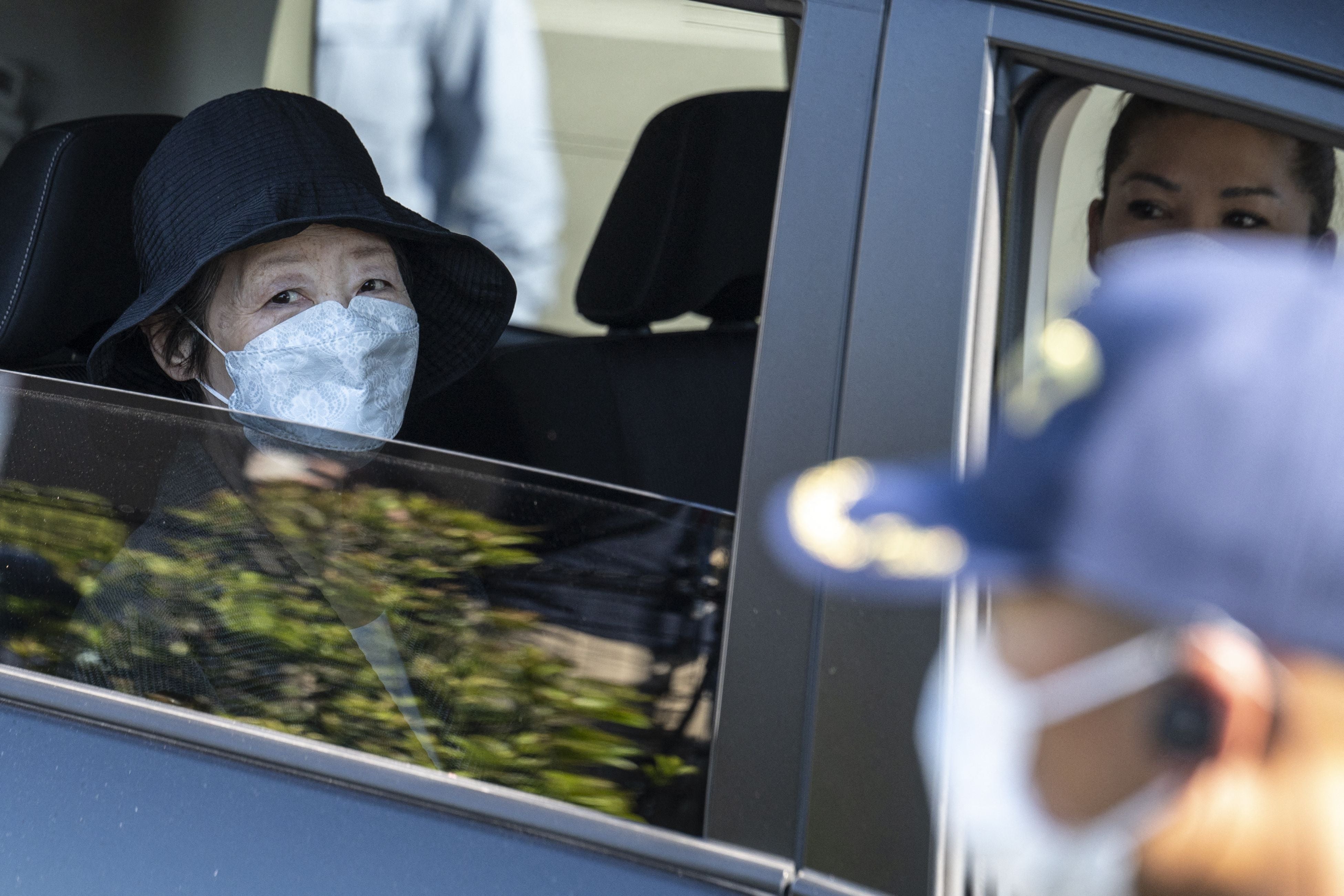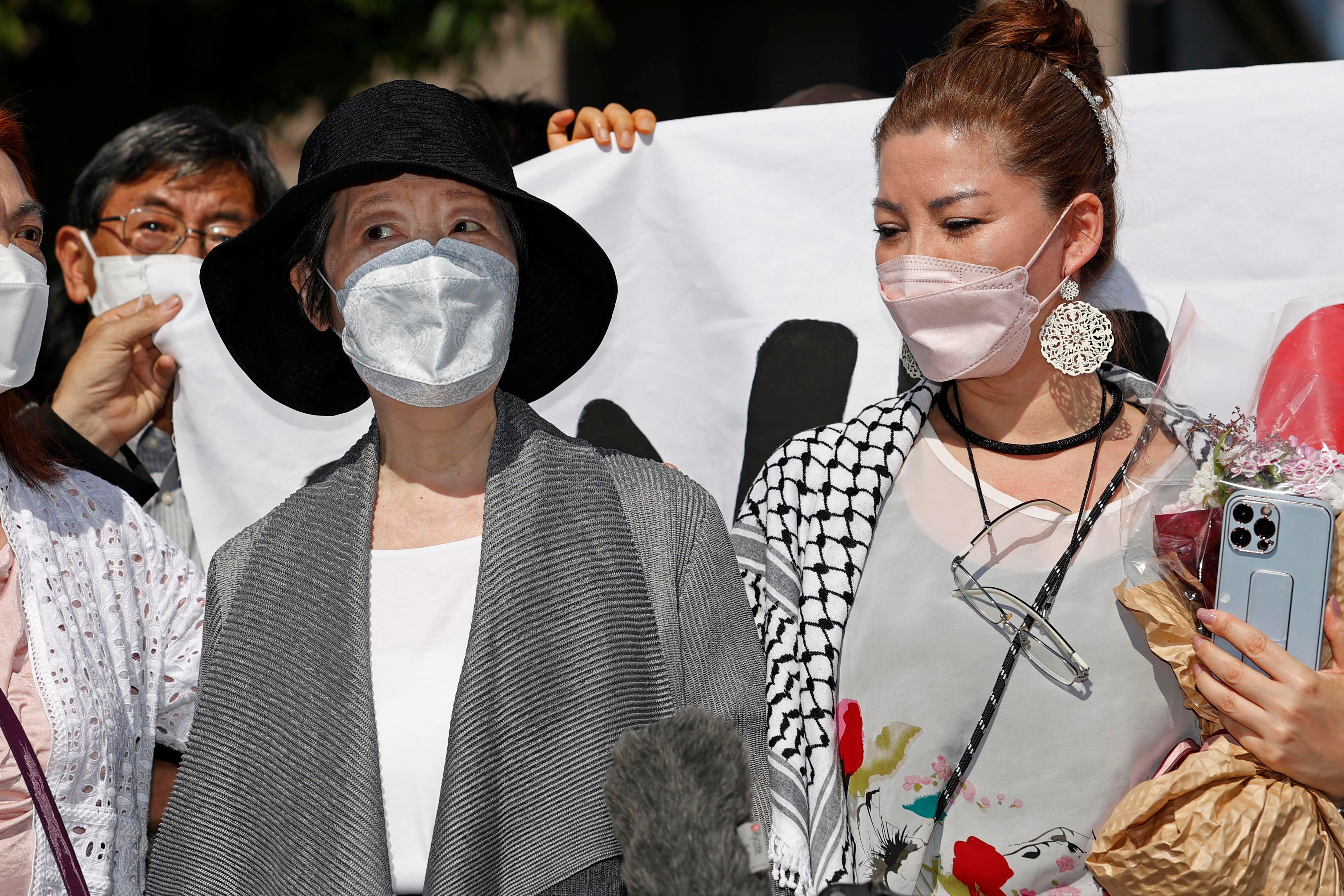The Independent's journalism is supported by our readers. When you purchase through links on our site, we may earn commission.
Japanese terror group founder behind 1974 French embassy siege released after serving 20-year sentence
‘I have hurt innocent people I did not know by putting our struggles first’

Japanese terrorist Fusako Shigenobu, who was convicted of masterminding a 1974 siege of the French embassy at The Hague, has been released after completing a 20-year jail sentence.
Shigenobu, who co-founded the terrorist group Japanese Red Army, appeared alongside her daughter Mei after being released on Saturday in Tokyo and “deeply” apologised for hurting people, the Associated Press reported.
“I have hurt innocent people I did not know by putting our struggles first. Although those were different times, I would like to take this opportunity to apologise deeply,” she said.
“I feel strongly that I have finally come out alive,” the 76-year-old said.
Shigenobu co-founded the Japanese Red Army in 1971. The group had taken responsibility for several attacks, including the takeover of the US consulate in Malaysia’s Kuala Lumpur in 1975.
It is also believed to have played a role in a 1972 machine-gun-and-grenade attack on the international airport near Tel Aviv, Israel, which killed 28 people.

While Shigenobu was not physically present at these attacks, she was listed as a wanted person by Interpol in 1974 after a siege on the French embassy at The Hague.
Three armed members of the Japanese Red Army members had taken nine government officials – including 54-year-old envoy Count Jacques Seriard – hostage, according to The New York Times archives.
Shigenobu had initially managed to evade capture, but was arrested in 2000 outside a hotel in Japan’s Osaka city after reportedly entering the country illegally using a forged passport.
Judge Hironobu Murakami of Tokyo’s district court found Ms Shigenobu guilty of conspiring with others to attack the embassy and sentenced her to 20 years in prison in 2006 after a lengthy trial.
In 2001, a year after her arrest, Ms Shigenobu formally announced the dissolution of the Japanese Red Army from her prison cell.
In her Saturday statement, she admitted to making “mistakes”, Kyodo News reported.
“I am grateful that I have lived according to my desire to change the world for the better,” she added.
Join our commenting forum
Join thought-provoking conversations, follow other Independent readers and see their replies
Comments
Bookmark popover
Removed from bookmarks